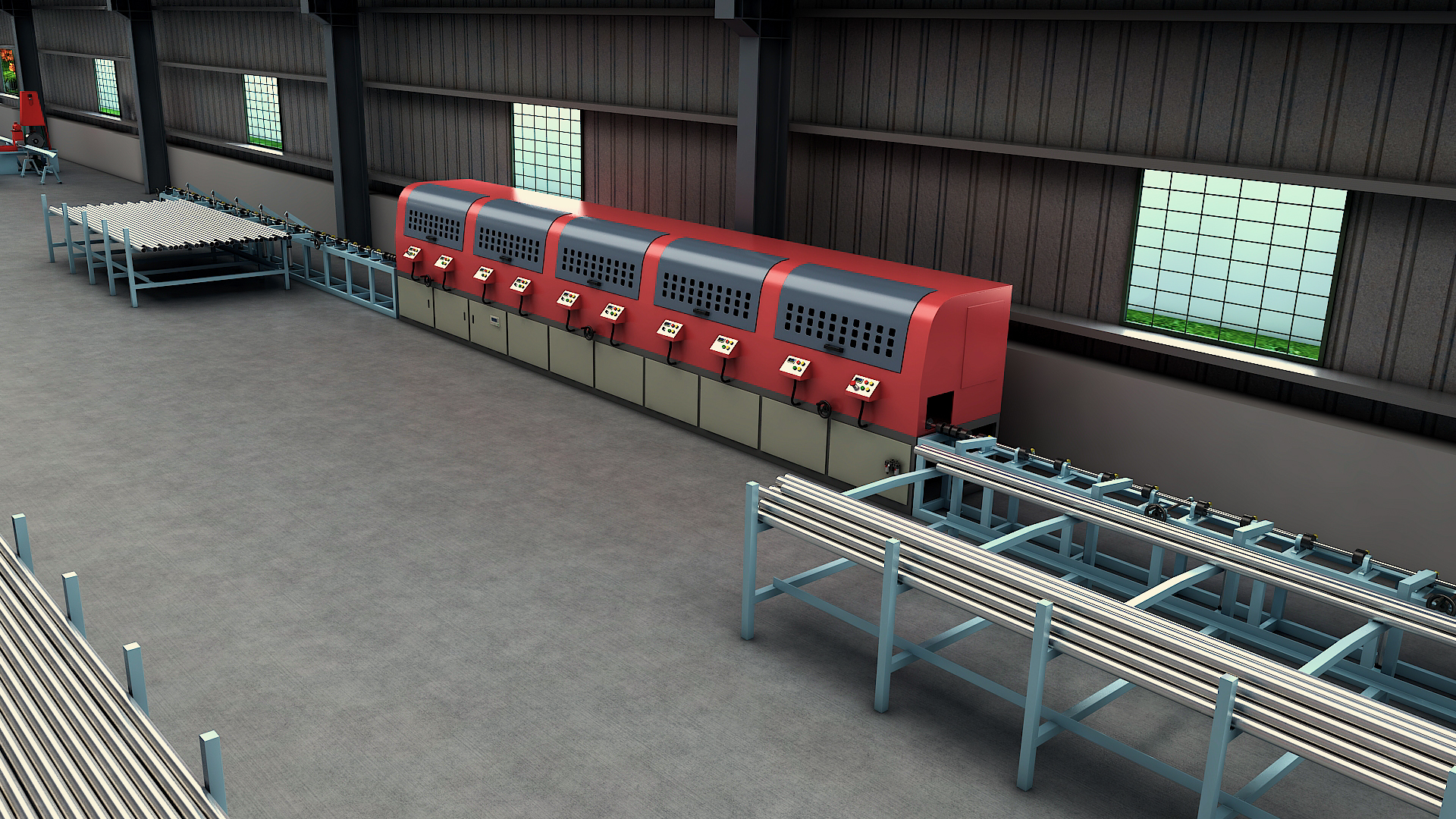In today's industrial landscape, the demand for high-quality stainless steel pipes and tubes continues to grow across diverse sectors. From chemical processing plants to food manufacturing facilities, from pharmaceutical companies to architectural projects, the need for reliable stainless steel piping solutions has never been greater. At the heart of this demand lies 304 stainless steel, a versatile austenitic grade that offers exceptional corrosion resistance, durability, and workability. Finding the right 304 stainless steel pipe supplier and stainless steel tube manufacturer is crucial for ensuring project success, cost-effectiveness, and long-term performance.
This comprehensive guide explores everything you need to know about sourcing stainless steel pipes and tubes, understanding the unique properties of 304 grade stainless steel, and selecting manufacturers who can meet your specific requirements. Whether you're a procurement professional, engineer, or project manager, this article will provide valuable insights into the world of stainless steel piping suppliers and help you make informed decisions for your next project.
Understanding 304 Stainless Steel: The Industry Standard
304 stainless steel stands as one of the most widely used grades in the stainless steel family, and for good reason. This austenitic stainless steel contains approximately 18-20% chromium and 8-10.5% nickel, creating a material that offers excellent corrosion resistance in most environments. The balanced composition makes it ideal for a vast array of applications, from kitchen appliances to complex industrial systems.
The superior properties of 304 stainless steel include excellent formability, weldability, and resistance to oxidation. Unlike carbon steel, 304 stainless steel maintains its structural integrity even when exposed to moisture, making it the preferred choice for applications where longevity and reliability are paramount. Its non-magnetic properties in the annealed condition and ability to be easily cleaned and sterilized make it particularly valuable in food processing and pharmaceutical industries.
When sourcing from a 304 stainless steel pipe supplier, it's essential to understand that this grade offers the best balance between performance and cost-effectiveness. While more expensive than carbon steel alternatives, the long-term benefits of reduced maintenance, extended service life, and superior performance often justify the initial investment. Quality manufacturers ensure that their 304 stainless steel products meet international standards such as ASTM A312, ASTM A269, and ASME SA312, providing customers with confidence in material performance and reliability.
Key Applications and Industries
The versatility of 304 stainless steel pipes and tubes makes them indispensable across numerous industries. In the food and beverage sector, these products are essential for maintaining hygiene standards while transporting liquids and gases. The smooth surface finish of quality stainless steel tubes prevents bacterial growth and ensures easy cleaning, making them ideal for dairy processing, brewing, and beverage production facilities.
Chemical processing industries rely heavily on stainless steel piping systems due to their resistance to various corrosive substances. A reputable stainless steel tube manufacturer understands the critical nature of these applications and ensures that their products can withstand exposure to acids, alkalis, and other aggressive chemicals. The pharmaceutical industry also depends on high-grade stainless steel tubing for drug manufacturing processes, where contamination prevention is absolutely critical.
Architectural and construction applications represent another significant market for stainless steel pipes and tubes. From handrails and structural supports to decorative elements and water systems, 304 stainless steel provides both functionality and aesthetic appeal. The material's ability to maintain its appearance over time, combined with minimal maintenance requirements, makes it an attractive choice for architects and builders seeking long-term value.
The automotive industry increasingly utilizes stainless steel tubing for exhaust systems, fuel lines, and hydraulic applications. Marine applications benefit from the corrosion resistance properties, particularly in saltwater environments where standard steel would quickly deteriorate. Oil and gas industries also rely on specialized stainless steel piping for various applications, though they may require higher grades for more demanding environments.
Selecting the Right Supplier: Critical Factors to Consider
Choosing the appropriate 304 stainless steel pipe supplier requires careful evaluation of several key factors. Quality certification stands as the most crucial consideration, as it ensures that the products meet international standards and specifications. Look for suppliers who maintain ISO 9001 certification and can provide material test certificates (MTCs) for their products. These certificates should include chemical composition analysis, mechanical property testing, and dimensional verification.
Manufacturing capabilities represent another essential factor in supplier selection. A comprehensive stainless steel tube manufacturer should offer a wide range of sizes, wall thicknesses, and lengths to accommodate diverse project requirements. Advanced manufacturing facilities equipped with modern tube mills, testing equipment, and quality control systems indicate a supplier's commitment to producing consistent, high-quality products.
Supply chain reliability becomes particularly important for large-scale projects or ongoing industrial operations. Evaluate potential suppliers based on their inventory management capabilities, delivery performance, and ability to handle both standard and custom orders. A reliable supplier should maintain adequate stock levels of common sizes while having the flexibility to produce specialized products when needed.
Technical support and customer service capabilities distinguish exceptional suppliers from average ones. The best 304 stainless steel pipe suppliers provide technical assistance for material selection, application guidance, and problem-solving support. They should have knowledgeable staff who can help customers choose the right products for specific applications and provide detailed technical documentation.
Geographic location and logistics capabilities affect both cost and delivery times. While global sourcing may offer cost advantages, local suppliers often provide faster delivery, reduced shipping costs, and easier communication. Consider the total cost of ownership, including transportation, handling, and potential delays when evaluating different supplier options.
Quality Standards and Certifications
The stainless steel industry operates under strict quality standards that ensure product safety, performance, and reliability. Understanding these standards is crucial when selecting a stainless steel tube manufacturer. ASTM International provides comprehensive standards for stainless steel pipes and tubes, with ASTM A312 being the primary specification for seamless and welded austenitic stainless steel pipes.
ASME (American Society of Mechanical Engineers) standards, particularly ASME SA312, govern pressure piping applications and provide additional requirements for materials used in high-pressure systems. European standards such as EN 10216 and EN 10217 offer alternative specifications that may be preferred for certain applications or geographic regions.
Quality manufacturers maintain strict adherence to these standards throughout their production processes. This includes raw material verification, in-process quality control, and final product testing. Look for suppliers who can provide comprehensive documentation including mill test certificates, material traceability records, and compliance certificates for specific standards.
Third-party certification from recognized bodies such as Lloyd's Register, Bureau Veritas, or TÜV adds an extra layer of quality assurance. These certifications demonstrate that the manufacturer's quality management systems and products have been independently verified to meet international standards.
Manufacturing Processes and Product Variations
Understanding the manufacturing processes used by stainless steel tube manufacturers helps in selecting the right products for specific applications. Seamless tubes are produced through hot extrusion or cold drawing processes, resulting in products with uniform wall thickness and superior mechanical properties. These tubes are ideal for high-pressure applications and critical systems where reliability is paramount.
Welded tubes are manufactured by forming flat strip into tube shape and welding the seam. Modern welding techniques produce high-quality joints that meet stringent performance requirements while offering cost advantages for many applications. The choice between seamless and welded products depends on specific application requirements, pressure ratings, and cost considerations.
Surface finishes play a crucial role in the performance and appearance of stainless steel tubes. Mill finish provides the basic surface condition, while additional finishes such as 2B, BA (bright annealed), or polished surfaces offer enhanced appearance and corrosion resistance. Food-grade applications often require specific surface finishes to ensure easy cleaning and prevent contamination.
Heat treatment processes affect the mechanical properties and microstructure of stainless steel tubes. Annealing relieves internal stresses and optimizes corrosion resistance, while solution annealing followed by rapid cooling ensures the austenitic structure that gives 304 stainless steel its desirable properties.
Cost Considerations and Value Engineering
The initial cost of 304 stainless steel pipes and tubes represents just one component of the total cost of ownership. While stainless steel products typically cost more than carbon steel alternatives, the long-term value proposition often favors stainless steel due to reduced maintenance requirements, extended service life, and superior performance characteristics.
When evaluating costs from different 304 stainless steel pipe suppliers, consider factors beyond the quoted price. Transportation costs, minimum order quantities, payment terms, and delivery schedules all impact the total project cost. Volume discounts may be available for large orders, while just-in-time delivery programs can reduce inventory carrying costs.
Value engineering opportunities exist in optimizing material specifications for specific applications. A knowledgeable stainless steel tube manufacturer can help identify cost-saving opportunities without compromising performance. This might include selecting the most appropriate wall thickness, choosing between seamless and welded options, or optimizing length specifications to minimize waste.
Life cycle cost analysis provides a comprehensive view of the total investment required over the product's service life. Factors such as maintenance frequency, replacement costs, downtime expenses, and disposal costs should be considered when comparing different material options and suppliers.
Future Trends and Innovations
The stainless steel pipe and tube industry continues to evolve with advancing technology and changing market demands. Digital manufacturing technologies, including advanced process control systems and predictive maintenance tools, are improving production efficiency and product quality. Leading stainless steel tube manufacturers are investing in these technologies to enhance their competitive position and better serve customer needs.
Sustainability considerations are increasingly important in supplier selection. Manufacturers who implement environmentally responsible practices, use recycled content, and minimize waste generation appeal to environmentally conscious customers. The recyclability of stainless steel makes it an inherently sustainable material choice.
Advanced alloy development continues to expand the capabilities of stainless steel products. While 304 remains the industry standard for many applications, new grades and modifications offer enhanced performance for specific environments or applications. Staying informed about these developments helps in making optimal material selection decisions.
Supply chain digitization and e-commerce platforms are changing how customers interact with suppliers. Online ordering systems, real-time inventory tracking, and digital documentation are becoming standard features offered by progressive 304 stainless steel pipe suppliers.
Conclusion
Selecting the right 304 stainless steel pipe supplier and stainless steel tube manufacturer requires careful consideration of multiple factors including quality standards, manufacturing capabilities, technical support, and cost-effectiveness. The superior properties of 304 stainless steel make it an excellent choice for diverse applications, but success depends on partnering with suppliers who understand your specific requirements and can deliver consistent, high-quality products.
The investment in quality stainless steel pipes and tubes pays dividends through reduced maintenance costs, extended service life, and reliable performance. By working with reputable suppliers who maintain strict quality standards and provide comprehensive technical support, you can ensure the success of your projects and operations.
As the industry continues to evolve with new technologies and changing market demands, staying informed about developments in stainless steel manufacturing and supplier capabilities will help you make optimal decisions for future projects. The right supplier partnership becomes a strategic advantage that contributes to operational efficiency and long-term success.




